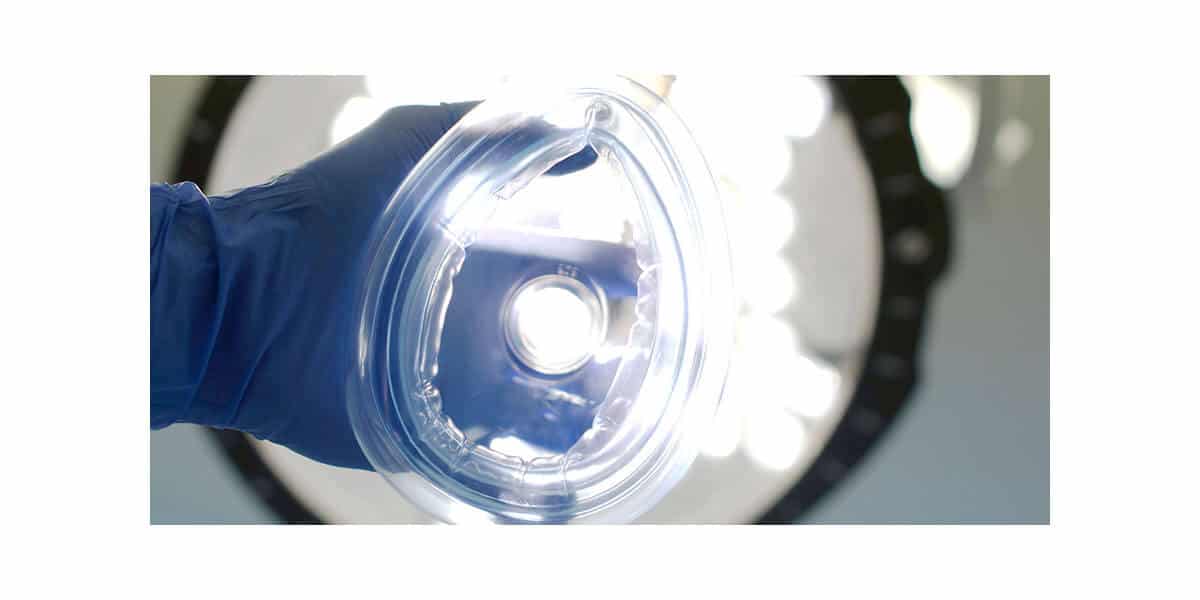
Sedation Dentistry & Dental Anesthesia in Boston, MA

Lucca Oral & Facial Surgery is committed to patient safety in anesthesia care. Our state-of-the-art facility is licensed to provide office based ambulatory anesthesia by the Massachusetts Board of Registration in Dentistry and is Certified by the Massachusetts Society of Oral and Maxillofacial Surgeons and the American Association of Oral and Maxillofacial Surgeons.
Our staff invest in diverse continuing education and performance improvement programs in anesthesia and receive advanced High Fidelity Human Simulator (SIM MAN) training in anesthesia techniques and emergency management annually. Our assistants are enrolled in the intensive Dental Anesthesia Assistant National Certification (DAANCE) program where they receive certification by the American Association of Oral and Maxillofacial Surgeons.
As Oral and Maxillofacial Surgeons, our doctors have trained with anesthesiologists during their hospital-based residency programs, distinguishing their education from all other surgical specialties and making our doctors uniquely qualified to administer in-office ambulatory anesthesia services. Our doctors are certified in Advanced Cardiac Life Support (ACLS), are members of the American Dental Society of Anesthesiology, and participate with the American Society of Oral & Maxillofacial Surgeons Office Based Emergency Airway Management (OBEAM) program.
Our doctors are licensed by the Massachusetts Board of Registration in Dentistry to provide a full range of anesthesia care including: Local Anesthesia, Nitrous Oxide, Minimal, Moderate, and Deep Sedation, and General Anesthesia. Our anesthesia services are customized to meet the needs of each individual patient.
Local Anesthesia
Local Anesthesia (“Novocaine”) will produce a numb feeling in the area being operated on and you will be aware of a feeling of pressure during surgery. You will be awake and recall the surgery, but there should be no significant discomfort. Local Anesthesia can be used alone, and is also used in combination with Nitrous Oxide, IV Sedation and General Anesthesia to ensure a pain-free experience after your surgery.
Nitrous Oxide
Nitrous oxide, sometimes referred to as “laughing gas,” is an effective and safe sedation agent that is inhaled through a mask that fits over your nose to help you relax. Mixed with oxygen, nitrous oxide allows you to breathe normally through your nose and within minutes you should start to feel the effects. You may feel light-headed or a tingling in your arms and legs. Some patient’s comment that their legs and arms feel heavy. Ultimately, you should feel comfortable and calm. The effects of nitrous oxide wear off quickly after the small mask is removed. Talk to the doctor about whether nitrous oxide would be a good option for you.
Mild, Moderate, and Deep Sedation (IV Sedation)
Procedures that are performed with the assistance of sedation are psychologically less traumatic for patients who will experience profound relaxation and reduced consciousness. Patients often have no memory of the procedure although they remain responsive throughout their care. Anesthetic medications are administered intravenously (through an I.V.) and make patients feel relaxed, often relaxed enough that they fall asleep. Patients that are sedated are continuously monitored with a pulse oximeter, blood pressure cuff, an EKG, and capnography throughout the procedure.
General Anesthesia
General anesthesia is a medically induced state of unconsciousness that feels like a deep sleep. Patients remain un-arousable throughout the procedure. Anesthetic medications are administered intravenously (through an I.V.) and inhalational medication (inhaled through a mask) may also be administered. General anesthesia may also be performed with the aid of an airway supportive device such as a Laryngeal Mask Airway (LMA) or an endotracheal tube (ET Tube), placed after you are asleep, to help you breathe safely during the procedure. Patients receiving general anesthesia are continuously monitored with a pulse oximeter, blood pressure cuff, an EKG, and capnography throughout the procedure.
Lucca Oral & Facial Surgery provides anesthesia in Boston, MA. Call 617-300-0345 to learn more and schedule an appointment.
* Anesthesia definitions are a useful guide, but remember, anesthesia is a continuum and it is not always possible to predict how an individual patient will respond. The definitions and stages of anesthesia often blend and overlap one another. It is possible, for example, for some patients to drift to or from levels of minimal sedation into and out of deep sedation and/or from deep sedation into general anesthesia and back again. Individual experiences and levels of awareness can vary.
Frequently Asked Questions About Sedation
Will I need someone to drive me to and from my appointment if I have sedation?
Does sedation mean I will be put to sleep?
Why is nitrous oxide called “laughing gas”?
Is sedation dentistry safe?
Am I a good candidate for sedation dentistry?
How long will it take for sedation to wear off?
Will I have any memory of the procedure while I was under sedation?
What are the side effects of sedation?
Who are the anesthesiologists at Lucca Oral & Facial Surgery?
At Lucca Oral & Facial Surgery, the most common form of anesthesia is moderate to deep sedation, otherwise known as IV Sedation or Conscious Sedation. For short, uncomplicated procedures, Dr. Lucca provides this chairside sedation. Oral and Maxillofacial Surgeons are trained alongside anesthesiologists during their hospital-based residency programs, distinguishing the education from all other surgical specialties and making Dr. Lucca uniquely qualified to administer in-office ambulatory anesthesia services. Dr. Lucca is certified in Advanced Cardiac Life Support (ACLS), is a member of the American Dental Society of Anesthesiology, and participates in the American Society of Oral & Maxillofacial Surgeons Office Based Emergency Airway Management (OBEAM) program. Dr. Lucca and the facility are licensed by the Massachusetts Board of Registration in Dentistry and certified by the Massachusetts Society of Oral and Maxillofacial Surgeons and the American Association of Oral and Maxillofacial Surgeons to provide all levels of anesthesia care. Dr. Lucca and his team invest in diverse continuing education and performance improvement programs, including regular participation in High Fidelity Human SImulator (SIM MAN) training in anesthesia techniques and emergency management. Dr. Lucca’s assistants also participate in and are certified by the American Society of Oral & Maxillofacial Surgeon’s intensive Dental Anesthesia Assistant National Certification (DAANCE) program.
Lucca Oral & Facial Surgery is committed to patient safety in anesthesia care, and when indicated, Dr. Lucca provides two-operator anesthesia care. For patients requiring longer and more complex procedures and general anesthesia, Dr. Lucca has worked with Dr. Patrick McCarthy and McCarty Anesthesiology, providing safety, efficacy, comfort, and access to care since 2007.
At Lucca Oral & Facial Surgery, patients can trust that their procedures will be provided with the utmost care, expertise, and oversight.
Who provides general anesthesia for patients at Lucca Oral & Facial Surgery?
At Lucca Oral & Facial Surgery, our patients (when appropriate) receive general anesthesia administered by our trusted colleague at McCarty Anesthesiology. This partnership ensures that our patients' comfort and safety are prioritized for advanced anesthesia care.
What do the anesthesiologists monitor during the procedure?
During the procedure, Dr. Lucca, his team, and anesthesia partners carefully monitor and observe breathing patterns, Oxygen saturation, end-tidal CO2, and all vital signs, including heart rate and blood pressure. Additionally, the team maintains continuous surveillance to promptly address any changes or complications that may arise throughout the dental treatment.
How is the patient put to sleep during general anesthesia?
During general anesthesia, the process of putting a patient to sleep at Lucca Oral & Facial Surgery involves several steps. Firstly, breathing and vital signs are carefully monitored. Intravenous Access is obtained to administer medication and IV fluids. For open-airway sedation, supplemental oxygen and nitrous oxide are provided via Nasal Mask. For general anesthesia, a combination of inhaled and IV-administered medications is utilized, as well as airway protection with an Endotracheal Tube or Laryngeal Mask (LMA).






